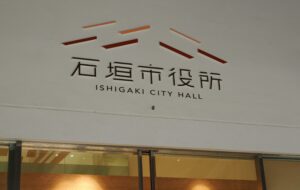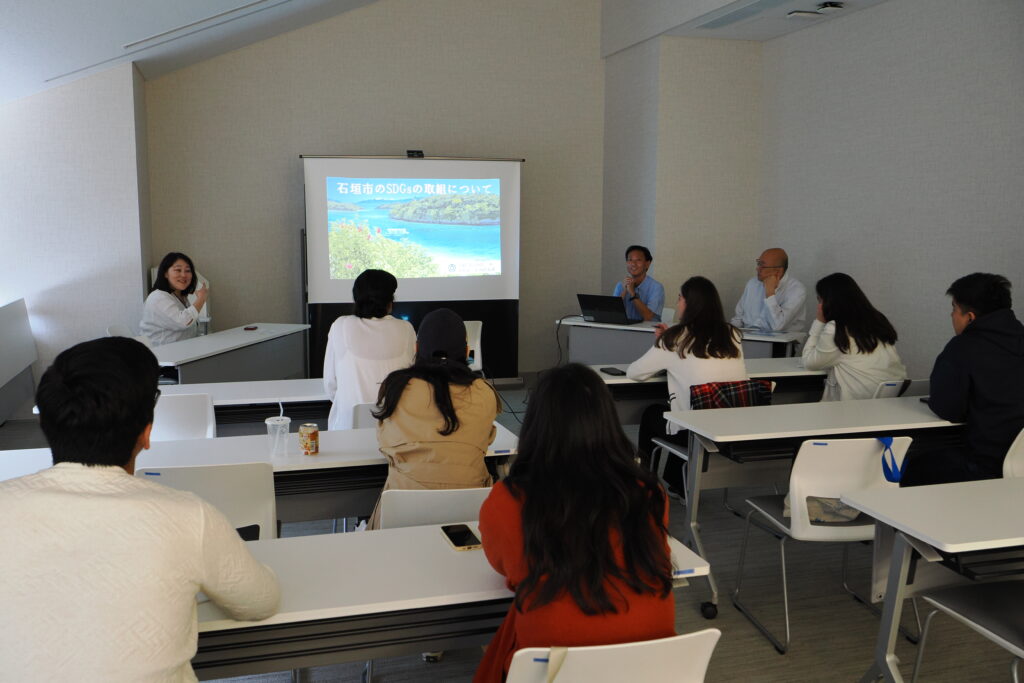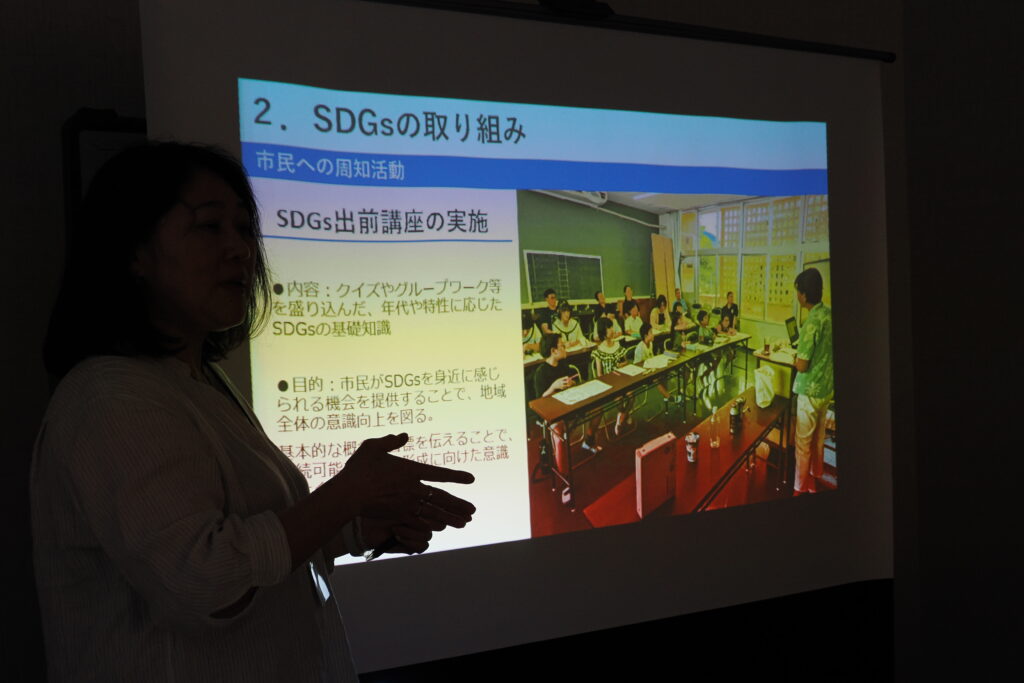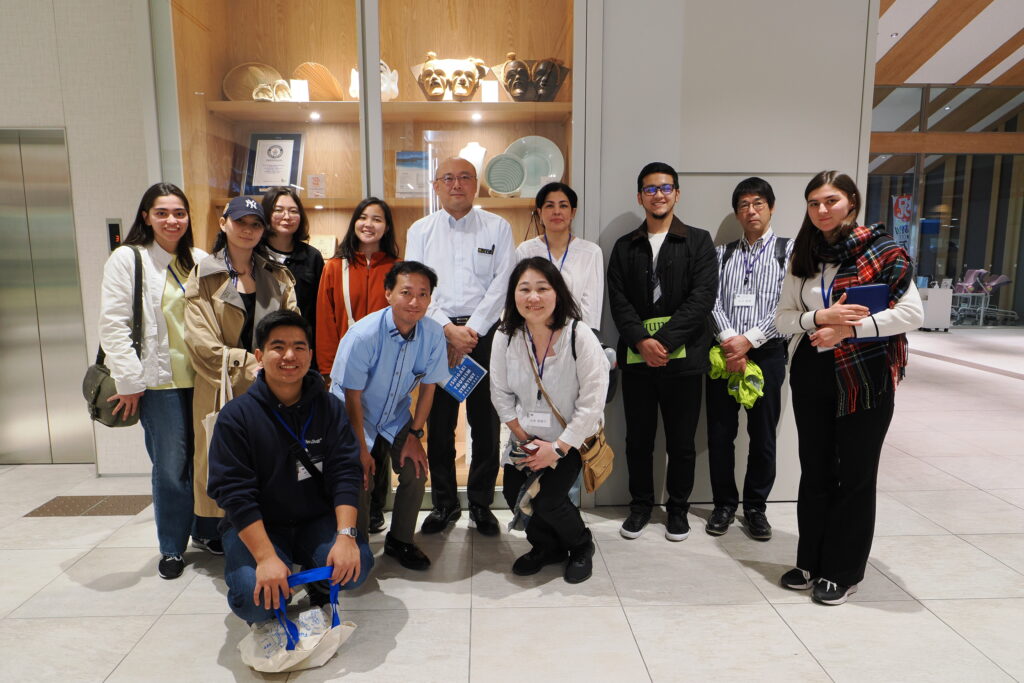Akramova Lola
On the 2nd day of our trip to Okinawa, we visited the Ishigaki city hall. During our meeting with the representatives of the city hall, I learned how the city and locals support SDGs in Ishigaki.
A little background information about Ishigaki: 80% of income comes from tourism. The main issue of the area is garbage that comes from different places, households mainly. The city deals only with household garbage, companies are responsible for their garbage disposal. In terms of SDG regulations, there is a platform to promote SDGs, the companies can register on the platform to promote ideas about SDGs. The benefit of the platform is that it creates opportunities to cooperate and exchange information. There were unique activities done by platform members. The first idea is Toto bags, and various plastic bags made of advertisement banners. The Second mentioned idea was about people with disabilities in a wheelchair and their ability to swim in the ocean. The third action to promote SDGs is a workshop implemented by local farmers for young adults’ participation in farming, for example, university students can generate ideas to solve food loss and work with farmers in the fields. Private companies implement these activities.
The city also takes action towards the support of SDGs. For instance, they organize lectures about SDGs at school. As a result, around 1000 students became aware of SDGs 3 years ago and 90% of students wanted to change their lifestyles. Also, during the lessons, students play simulation games that give them a better understanding of the advantages of supporting SDGs. One of the games is about students brainstorming ideas and coming up with solutions for destroyed areas. The main reason for such games is to demonstrate how students are responsible and can impact their future; it provokes the question: If not us, then who? Last but not least, the other example is of isolated foreigners who were taught to drive buses and dye the textiles with the colors from fruits and plants.
The lecture was interesting and I have learnt a lot of useful ideas of how to support SDGs. I would like to implement them in my country, Uzbekistan in the future. I think social awareness of SDGs starts from an early age, and I think games, workshops and lectures can change school students’ perception and feeling of responsibility for sustainable development if not on a large scale of a county but a household. I am glad to be one of the participants in such a meaningful session.







